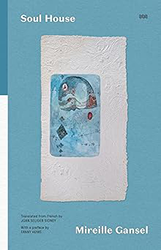Golden-haired Irma grew up in Imperial Austria believing that wars and prejudice were fading, only to have her life upended and her identity challenged to the core by two world wars.
History confronts Irma time and again. Arch-Nazi Adolf Eichmann plays a twisted role in the fate of her prominent Jewish politician husband, Jakob Ehrlich, and her own escape from Vienna. After arriving with her son first in London and then in New York, Irma encounters a dazzling world of power elites, including Chaim Weizmann (the first president of Israel), British parliamentarians, and other renowned figures who engage her in bringing relief to refugees.
Narrated alternately by Irma’s granddaughter, Catherine, and Irma herself, this account of Irma’s journey from Czech country girl to grande dame in New York is a riveting, intimate tale of aspiration, activism, and world-changing national movements. Part personal memoir, part historical drama, Irma’s Passport is ultimately a tribute to human dignity, a story in which one woman can restore the lives of many and courage is a victory in itself. Irma’s Passport is a finalist for Foreword Indies book of the year.

Nonfiction
Irma’s Passport: One Woman, Two World Wars, and a Legacy of Courage
September 1, 2020
Discussion Questions
Courtesy of Catherine Ehrlich
- How does the theme of empowered and courageous women in Vienna, London, and New York differ from the historical narrative you had in mind before you read this book?
- What are all the sources of Irma’s strength? Does Irma show qualities as a woman that are distinct or undervalued?
- What role does education play in Irma’s life?
- What do you think of the author’s conclusion that Irma’s pride was an asset? Do you think pride can be transformative?
- To what extent do you see Jewish values in this narrative? What do you think of the author’s assertion that her family history is adaptation?
- Do you think of languages as a figurative passport in life? Discuss.
- Consider Grandma Julie and Grandma Irma. Do you see a distinct role for grandparents in building family narratives?
- Did you learn anything new or surprising about WWII history? Zionism? Holocaust? How does that change any pre-existing perspective you had?
- If you like Paul were expelled from school at 14 — and all your non-Jewish classmates had fought for Hitler — what would it take for you to be open to reconciliation?
- Did you find anything unexpected or familiar in the original Zionist manifesto’s statement that immigration is a vicious circle: that a large influx of foreigners is universally disruptive. Are there implications for now?
- Jakob as a Zionist understood the threat of anti-Semitism but stood his ground. Many wonder why Jews didn’t leave Europe sooner – why they underestimated Hitler. What do you think of Jakob’s stance? Considering Austria in the 1930s, what conditions would make you decide to leave your homeland? Could a change in leadership make you emigrate?
- After Paul died, the author found unexplained diamond earring in his drawer. Do you have such heirlooms with an element of mystery?

Jewish literature inspires, enriches, and educates the community.
Help support the Jewish Book Council.


